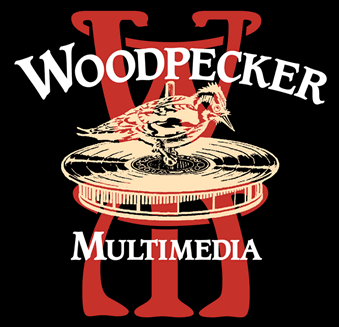|
|
Harvey Reid Interview with FACE Magazine Sept 29 2002
written by Dale Robin Lockman Reprinted by permission.
Most people have some idea that dealing with a major record label involves a
lot of competition and politics...were there problems beyond the expected which
surprised you when you approached existing record labels with your music?
I didn't approach major labels, just the higher profile acoustic ones like Rounder
and Flying Fish and Takoma. In 1982 it was unthinkable for a major to sign somebody
like me. They were dropping people like Paul Simon, Bonnie Raitt and John Prine.
How long did you work at trying to get someone else to record your music
before you decided to do it yourself?
I had already recorded most of it, and just sent it around to see if anyone
was interested.
And how complicated was it back then?
Part of what was hard was that blank tape was so expensive. A 45-minute reel
of 16-track Ampex tape costs $250 20 years ago. So you could not think about
doing 20 takes of a song the way you might do now with a DAT or a computer.
And pressing vinyl was more expensive and difficult than making a CD. My recording
career really got going when I started recording myself. It's not easy to book
a session weeks away, and prepare and spend all the money you have and still
do a compelling performance. You do your best, but I still believe that when
you are not watching the clock and the checkbook you're more likely to capture
something good. My life goal has been sort of a documentary approach to music
anyway, and I have played since I was a kid and I know that feeling when it
is soaring and really working, and all I ask is to capture some of that in front
a good-quality recording machine. It is surprising hard to do that, in fact--
almost stealing from the Gods just to play a magic take right smack in front
of the mikes, with the levels set right and everything. Your mind plays so many
tricks. That part has never changed.
With the proliferation of small independent labels, what important changes
have you noticed in the independent music industry?
The biggest change I have seen is the massive number of new artists. Songwriters
actually have a shot at the "big time" these days. In the early 80's
it was as as uncool to be an acoustic guitar white songwriter as it has been
in my lifetime. People like me just did what we did, and didn't chase markets,
since there were no markets. It was simpler. And the influx of thousands of
new artists has also clogged the whole business up. The single largest obstacle
between me getting my music to the promoters and media people that I want to
hear it is the pile of other people's CD's and promo materials that's already
there. With recording equipment and desktop publishing making it so easy to
make the materials to promote yourself, more people are doing it, and it is
like buying raffle tickets-- the more tickets, the smaller chance of winning.
Not many business people have to deal with that. I always did it with a true
independent spirit, and never with the expectation of fame or stardom. I have
always feared those things, in fact. I own a big house and my credit card is
paid off. I'm doing fine, and a lot of people who chased fame and even many
who had success are not doing nearly as well as me. And I get to live in a seaside
town in Maine and not in LA. In fact, tonight I am going to send out an e-mail
announcement about the new CD to my mailing list, and it will probably pay for
the whole CD within a couple days, since there are enough people out there who
support me. It's an awesome feeling, and I owe it all to the listeners who buy
my music. Pop stars would not survive on the size audience I have, but I can.
It's sort of like growing your own food versus getting it in a plastic package.
I'm recession-proof, and I have survived 20 years, and my micro-business model
will survive a lot longer. I started out as a street musician, and if I have
to I will do that again.
With your own label, you have complete artistic freedom...are there
challenges that come with that?
When you know what you want, it's great to be in charge. The hard part is when
you can't make up your mind. Choosing one song or one take of a song over another
can be tough. Deciding what to call the album-- what picture to use, what font,
what the liner notes will be-- those are all decisions, and they pile up. And
there is always the sinister hand that looms up and makes you want to overproduce
or to chase a trend. If you do a lackluster take of a solo song, it is SO easy
to decide "Oh, this song needs harmony vocals" or "this obviously
needs a bass, and you try to fix something that is not perfect by piling things
on top of it, rather than just believe in yourself and re-do it. When you are
paying studio rates, you then get to the point where you have spent so much
money trying to "fix" it that you can't afford to throw it away and
start over, so you release something that has no magic in it. I have some recordings
I listen to that remind me how powerful a solo performer can be. Nic Jones and
Dick Gaughan come to mind, and also Jesse Colin Young's "Soul of a City
Boy" which he did in one session. When I did "Steel Drivin' Man"
in 1991, which was a totally solo, live-in-the-studio CD, I remember thinking
to myself over and over-- if I can spend 20 years of my life fanatically pursuing
this muse and learning this music, and if I can't sit down and just do it--
if it is not worth listening to in its rawest and purest form, then I quit.
That was my mantra. As it turns out, it has been one of my most respected efforts,
so I have not quit.
Have you ever released other artists' music on your label?....any future
plans to do so?
Everyone I have ever met who had a record label, for 25 years, has complained
about it, and I never wanted to be the one they complained about. I still don't.
In addition to managing your own recording label, you also manage your own
public relations, book your own tours and author your own website. Which
aspect of the whole picture the hardest to keep up with? How do you
advocate for the value of your work without sounding too egotistical?
Obviously I can't talk myself up, so I don't. I don't really have a marketing
style or anything-- I just send the stuff and call the people and behave like
a human being. I learned that from a lot of the club owners I used to work for
in the old days-- they never liked agents and often told me so, and they liked
talking with me and I liked dealing with them. I still maintain that I never
get into a weird gig situation myself-- I can smell something wrong, and I am
never surprised. I know I could be playing larger places if I had a business
team, but it is not that simple. Established agents and such people always want
to work with bands, for one thing, since they get a lot more $ for the same
work. It's only been very recently that a solo acoustic person could pull down
enough dough to afford much management. I formed a lot of my habits when things
were really bleak, and so I just keep doing it. I started building a website
when there was no such thing as someone who could make you a web site, so I
am used to doing it. I've been xeroxing things so long I could manage a Kinko's,
and it takes less time to do it than have a meeting and discuss how to do it
with someone. I like working with the promoters directly anyway, and a lot of
them are great people, and they still tell me stories of getting hosed by showbiz
people. Living in Northern New England keeps your feet on the ground about that
sort of thing.
What advice would you give new artists who would like to maintain artistic
and business control of their music?
My approach has always been a practical one. Don't build your strategy around
winning the lottery and getting famous. I tell all the beginners to just record
their CD's the same way they do a concert. If it is good enough for the audience,
why can't that be a CD? It is really really hard to not get all your friends
involved and to hide yourself when you really need to reveal yourself. There
has been so little in the way of role models for people to just play their songs
and feel like it is a complete sound. When someone hears you play solo, and
they buy a CD, they don't want it to be different, and full of drums. Likewise,
no one will hear your overproduced album and want to book you. The 2 things
that are about making a living: selling CD's and booking gigs, revolve around
your CD being as much like your live show as possible. I left Nashville because
I would play people a tape that I thought was finished and they called it a
"demo." You have to believe in your art, and remember that you can
create a perfect experience with just you and an audience, even of just one
person. Learn how to play your best and emote in front of an audience, and then
you realize that all the other stuff-- all the PA systems, wires, agents, magazines,
radio , everything-- is just noise in the channel, and cannot improve on what
you are already doing. You have to feel like your music is a message trying
to get through, and you have to guide it through the mikes and the computers
and the mail and the wires till it gets where it needs to go, which is to the
people on the end. People really need music. I have a folder of fan letters
I get from strangers, and they mean more to me than anything a family member
or friend has ever said. There are people who can hardly face getting up without
cranking their stereos. People have told me that they held hands with their
mother while she died, while listening to one of my songs. It is an honor when
people listen to you, even if it is not millions of people. A woman once told
me at a little gig somewhere, she said "You know, we have more of your
CD's than we do of the Beatles." and I felt so lifted. It's not shameful,
it's not a defeat to be on the fringes of the music business. It's where I have
always wanted to be, and where I have always been. I still don't like showbiz
and all that comes with it.
WOODPECKER MULTIMEDIA
5 Fernald Ave York
Maine 03909 USA
phone (207) 363-1886

This web site
concerns the music and life of acoustic musician, writer & music educator Harvey Reid.
If
you don't find what you want, or if you have comments or questions, please email
to 
|
 H
H

 H
H
